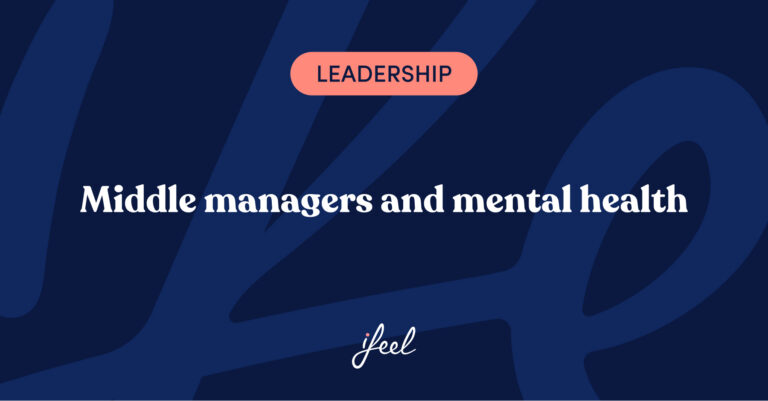The conversation about men’s mental health has increased significantly in recent years. As studies and social movements advance, challenging culturally ingrained stigmas and prejudices has become essential to achieving well-being.
This raises a crucial question for HR leaders and decision-makers: How can your organization effectively address and support men’s mental health?
However, when the burden or discomfort overwhelms us, it may be time to seek a specialist to support us in this process. This should not be a cause for shame or fear. On the contrary, knowing how to ask for help in time represents strength and the ability to take charge of what concerns us to prevent the distress from worsening.
The problem is, although it sounds logical – in theory – many people find it difficult to ask for help when needed. In fact, our Mental Well-being Trends report found that 57% of people who seek counselling do so after experiencing these symptoms for a year or more. In turn, such waiting aggravates the symptoms and results in 40% of those users rating their symptoms as “highly severe”.

Men’s mental health stigma
Historically, discussing mental health, especially for men, was taboo. Fortunately, this is changing, yet stigmas persist. Social stereotypes label men who express emotions as “weak,” reinforcing harmful beliefs that can deter them from seeking help. This can lead to worsening mental health issues, potentially resulting in serious consequences like suicidal behavior or psychological disorders.
Understanding these social constructs is critical. The stigmas surrounding men’s mental health can lead to avoidance of necessary care, exacerbating problems. For HR leaders, creating an environment where seeking help is normalized can prevent these issues from escalating.
Common myths vs. realities of men’s mental health
| Myth | Reality |
|---|---|
| Men’s emotions are a sign of weakness. | Expressing emotions is a sign of courage and strength. |
| Men should overcome problems on their own. | Seeking help is a proactive approach to managing health. |
| Mental health issues are uncommon in men. | Mental health issues are common and should be addressed. |

Understanding the importance of men’s mental health
As human beings, we all can perceive, think and feel. This means we are all destined to experience a wide range of emotions. Why? Because emotions play a crucial role in our lives. From the simplest explanation, emotions are evolutionary adaptations that help us interpret the world around us and thus cope with our different situations. Therefore, learning to identify and manage these emotions best is essential to maintain a state of general well-being.
However, despite the apparent simplicity of this premise, the reality is that it is not always easy. In many cases, and specifically in terms of men’s mental health, social expectations, and pressure to conform to the traditional ‘ideal’ of masculinity have led men to ignore what is going on in their emotional world and hide their inner struggles.
But what happens when we turn our backs on what we feel? We are likely to stagnate on our path to mental well-being. This is because emotions serve as signals that alert us to a need we need to meet or indicate the presence of something we need to pay attention to. Consequently, denying our emotions, repressing our feelings, and hiding our struggles only leads to those needs going unmet, worsening the original condition.
For this reason, not attending to what is happening to us in time causes a deterioration in our well-being and, ultimately, in our mental health. According to Mental Health UK, 12.5% of men in England have a mental health disorder. The accumulation of stress, anxiety, anger, or sadness can have a detrimental impact on our daily lives and interpersonal relationships.

Talking about men’s mental health is fundamental to building a more understanding and empathetic society. It breaks down the stigmas still associated with this issue. By making visible the importance of talking about emotions and mental well-being in general, we open the possibility of seeking support and pave the way for other men to do the same.
Advice for HR leaders
Navigating the complexities of men’s mental health in the workplace requires proactive and informed leadership. HR leaders are crucial in shaping a workplace culture that prioritizes mental well-being and reduces stigma. Here are some strategic actions to consider:
1. Promote open conversations: Foster an open dialogue about mental health in the workplace to normalize discussions and reduce stigma.
2. Implement training programs: Equip managers and HR teams with training to recognize and support employees struggling with mental health issues.
3. Offer comprehensive support: Provide access to mental health resources, such as counseling and employee assistance programs.
4. Celebrate initiatives: Participate in awareness campaigns like Movember to highlight the importance of mental well-being.
5. Regular check-ins: Encourage regular mental health check-ins with employees to ensure they feel supported.
By integrating these practices, HR leaders can create a supportive environment where mental health is openly discussed and addressed. This not only enhances overall employee well-being but also contributes to a more resilient and productive workforce.
The Leadership Lens 🔎
HR leaders have a unique opportunity to drive meaningful change by integrating men’s mental health considerations into the organisational culture. Start by embedding mental well-being into corporate values and policies, signaling its importance to all employees. Encourage leaders to model vulnerability by sharing their mental health journeys, which can empower others to do the same. Create an inclusive environment where mental health is part of regular performance discussions, not just an issue addressed in times of crisis. By fostering an atmosphere of psychological safety, employees are more likely to reach out when experiencing challenges, leading to timely support and intervention.
Caring for mental well-being in organisations
At ifeel, we understand that it is time to break the stigma that has surrounded men’s mental health for so long, creating spaces where people can ask for help and talk openly about what really matters.
To support companies in this process, our team of expert workplace well-being psychologists has created a mental well-being solution for businesses that improves talent retention, reduces presenteeism, and combats employee stress.
With our mental well-being solution, your company’s HR managers can receive personalised, data-driven advice on improving mental health at work. In addition, this solution offers employees a 360° mental well-being service structured at different levels according to their needs. Try our solution now to see how it could help you.
We hope you found this post about men’s mental health interesting. If you would like more information about our mental well-being solution for companies, simply request it, and we will get in touch with your team as soon as possible.










